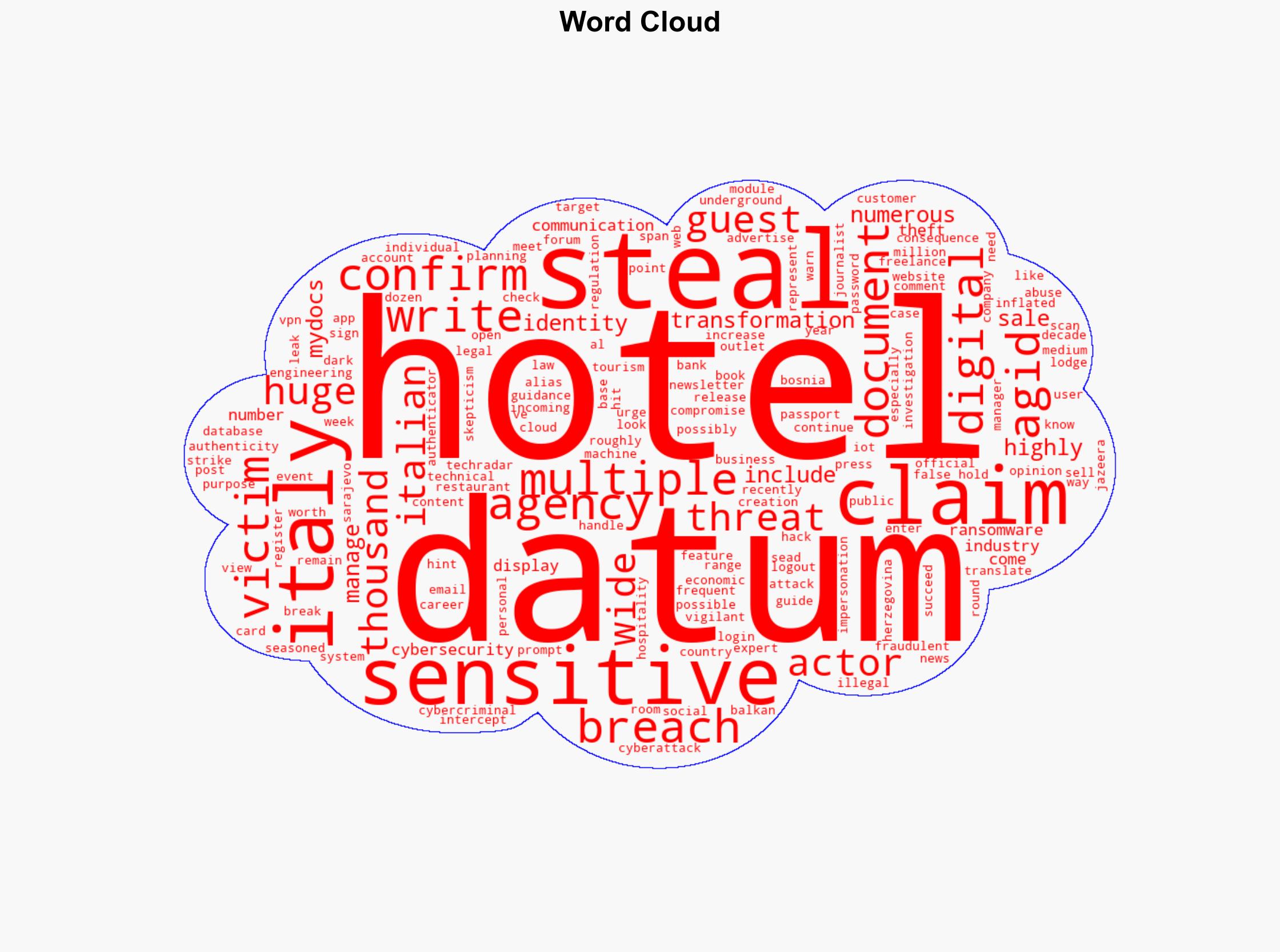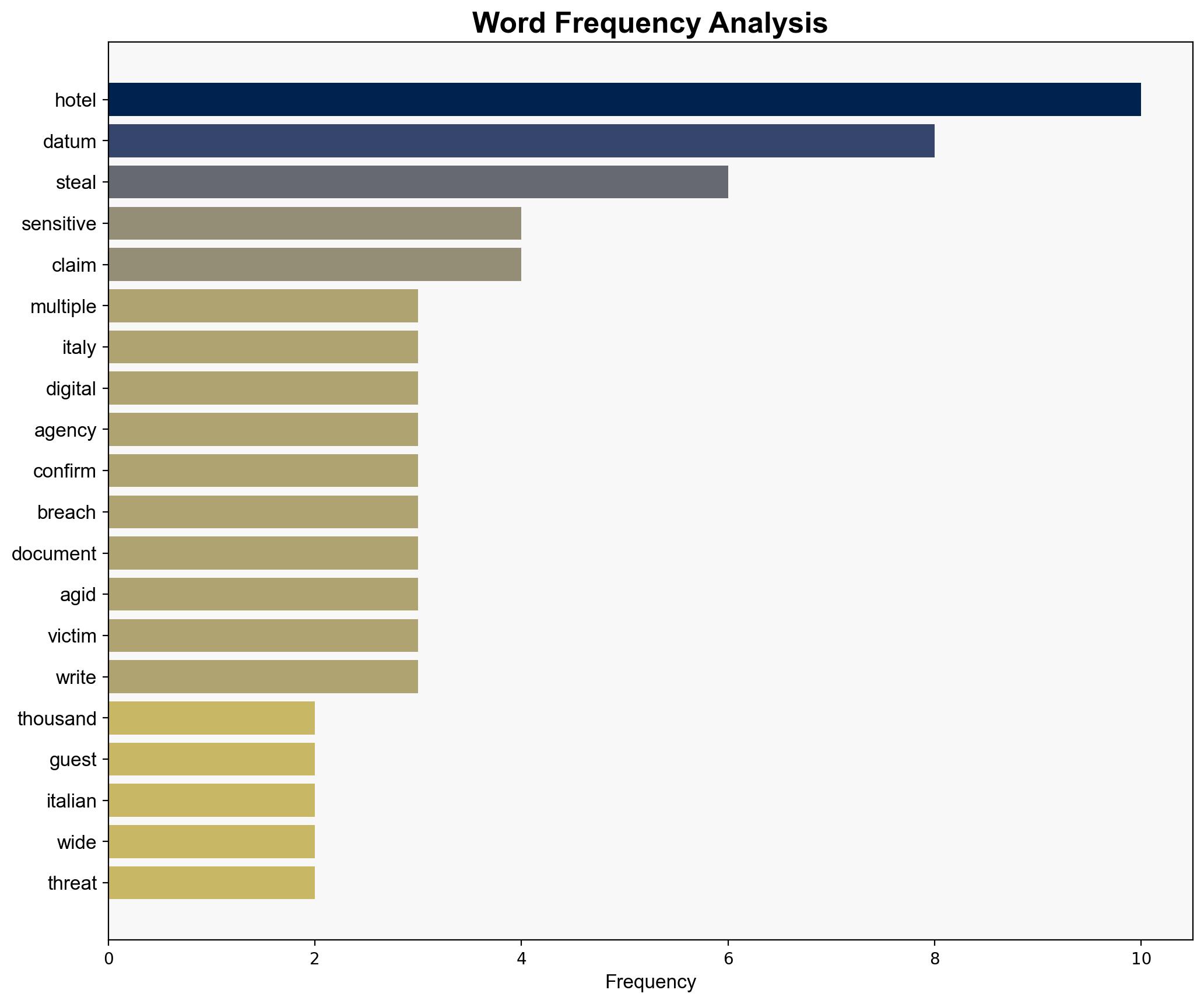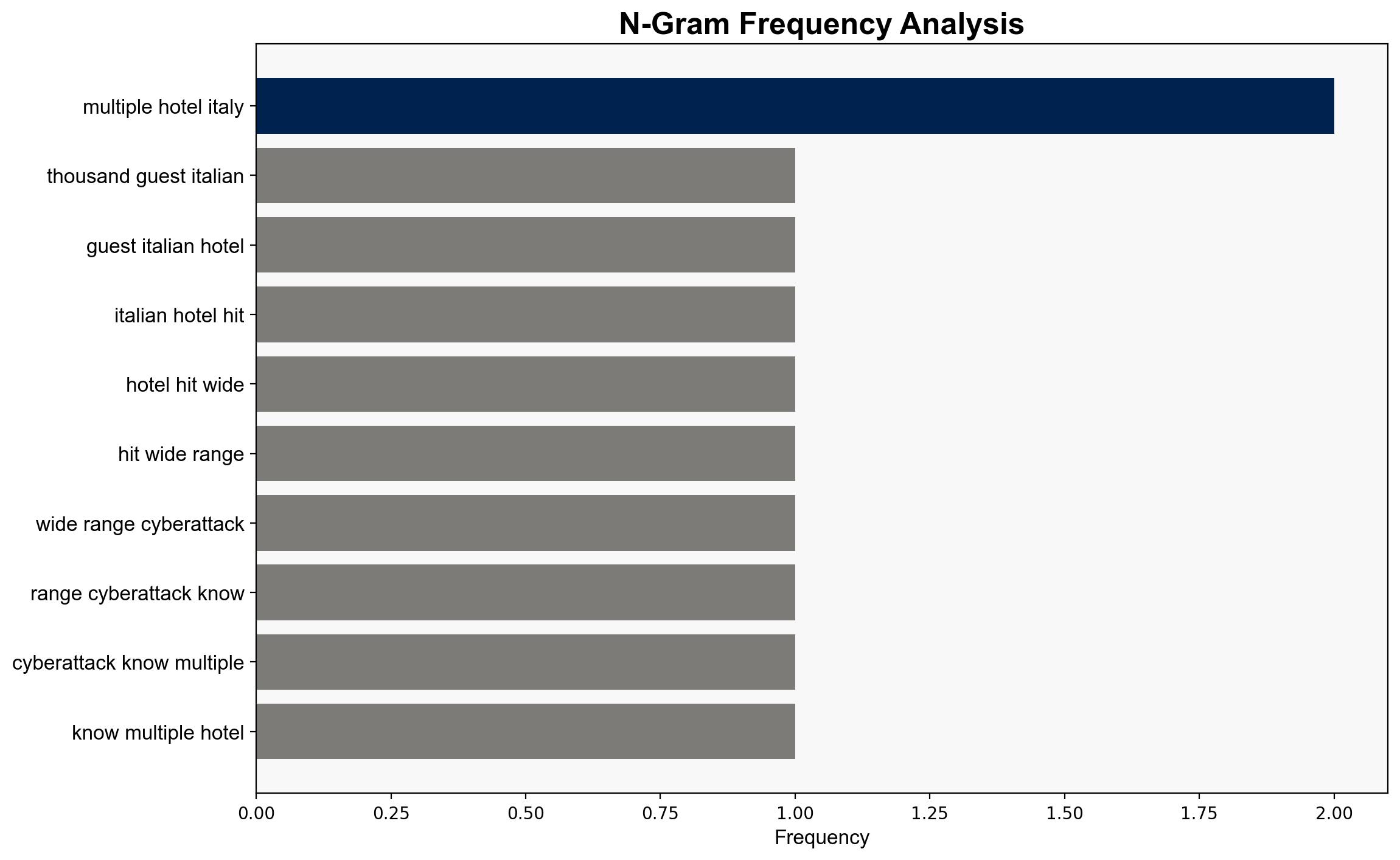Thousands of guests at Italian hotels hit in wide-ranging cyberattack – here’s what we know – TechRadar
Published on: 2025-08-15
Intelligence Report: Thousands of guests at Italian hotels hit in wide-ranging cyberattack – here’s what we know – TechRadar
1. BLUF (Bottom Line Up Front)
The cyberattack on Italian hotels, attributed to the threat actor “mydocs,” has resulted in the theft of sensitive customer data, which is being sold on the dark web. The most supported hypothesis is that this attack is part of a broader campaign targeting the hospitality sector for financial gain. Confidence level is moderate due to limited verification of the threat actor’s claims. Recommended actions include enhancing cybersecurity measures across the hospitality industry and monitoring dark web activities for further developments.
2. Competing Hypotheses
1. **Hypothesis A**: The cyberattack is primarily financially motivated, with “mydocs” targeting the hospitality sector to sell stolen data on the dark web.
2. **Hypothesis B**: The attack is part of a larger geopolitical strategy, potentially involving state-sponsored actors aiming to destabilize the Italian economy or gather intelligence on foreign nationals.
Using Analysis of Competing Hypotheses (ACH), Hypothesis A is better supported due to the focus on selling data for financial gain, as indicated by the dark web activities. Hypothesis B lacks direct evidence of state involvement or geopolitical motives.
3. Key Assumptions and Red Flags
– **Assumptions**: It is assumed that “mydocs” is a financially motivated cybercriminal group. The authenticity of the data breach and the scale of the attack are assumed based on AGID’s confirmation.
– **Red Flags**: The skepticism from the cybersecurity industry about the scale of the breach and the potential exaggeration of the number of affected individuals.
– **Blind Spots**: Limited information on the identity and capabilities of “mydocs” and the potential involvement of other actors.
4. Implications and Strategic Risks
The attack highlights vulnerabilities in the hospitality sector’s cybersecurity infrastructure, potentially leading to increased targeting by cybercriminals. The sale of sensitive data could result in identity theft, financial fraud, and reputational damage to Italian hotels. If state actors are involved, it could escalate into broader geopolitical tensions.
5. Recommendations and Outlook
- Enhance cybersecurity protocols across the hospitality industry, including regular audits and employee training.
- Monitor dark web forums for further data sales and potential leads on the threat actor’s identity.
- Scenario Projections:
- **Best Case**: Increased security measures prevent further breaches, and stolen data is recovered or rendered unusable.
- **Worst Case**: Data is widely exploited, leading to significant financial and reputational damage to the hospitality sector.
- **Most Likely**: Continued targeting of the hospitality sector with incremental improvements in cybersecurity defenses.
6. Key Individuals and Entities
– “mydocs” (threat actor)
– Italian Digital Transformation Agency (AGID)
7. Thematic Tags
national security threats, cybersecurity, counter-terrorism, regional focus





